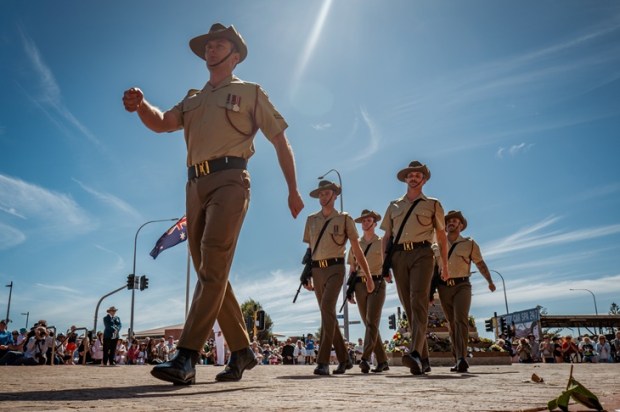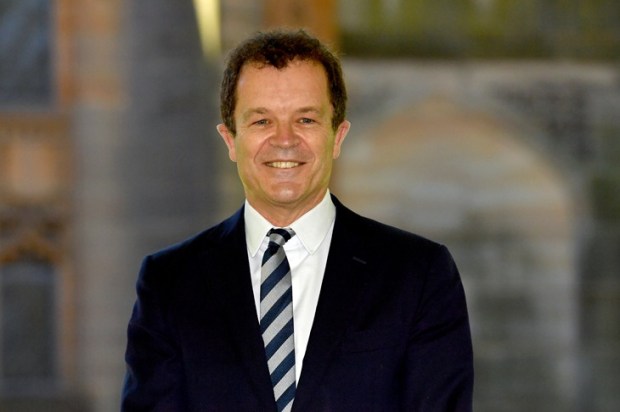The UK has ‘handed the vote’ to 16-year-olds in a move that has been seen as Sir Keir Starmer trying to ‘rig the political system’. Many are concerned that lowering the voting age will benefit the left, but the ‘age of majority’ in modern civilisations is arbitrary. In the past, lowering the arbitrary voting age has led to other legal reforms that return society to equilibrium soon after. Indeed, Australia copied the UK in lowering the age of majority last time, so it should be no surprise if it happens this time around.
As humans take such a comparatively long time to develop, young humans are inherently vulnerable and rely on adult humans for support. In their natural state, one might imagine young humans being deemed adults after some form of ritual or achievement, or indeed out of necessity.
In modern civilisation, adulthood is typically associated with an arbitrary age where, once achieved, a legal adult assumes all the rights and responsibilities of citizenship, which typically include voting. The May 1974 federal election was the first time 18-year-olds could vote in Australia thanks to the Whitlam Labor government. Previously, it was 21 years of age.
While the left has a history of lowering the voting age, the change from 21 to 18 years of age as the arbitrary signifier of legal adulthood attributed the relevant rights and responsibilities to those now deemed adults. The change to 16 years of age might as well be to 1 or 100 years of age. It really depends on society’s view as to what age a human is deemed to be responsible for their own existence and capable of participating in society.
In our federal system, there are various rights and responsibilities that are determined by the states. Lowering the voting age to 18 began in Western Australia in 1970, with New South Wales and Victoria following soon after. Once the voting age changed to 18 federally, the ‘coming of age’ period became uniform soon after. One’s 21st birthday, complete with a symbolic key that unlocked the rights and responsibilities of adulthood, lost its importance legally. Afterwards, one’s 18th birthday never really took on the same symbolic significance.
Moving the age to 16 should therefore lead to 16-year-olds having the rights and responsibilities of adulthood. The age of majority change in the 1970s soon led to a nationally uniform age at which one could legally drink alcohol. In some cases, the age was lowered from 21, but in the first decade of the 20th Century, the legal drinking age in New South Wales and Victoria was 16, so there is a precedent.
There is a slew of other changes that go hand-in-hand with a change of the voting age.
Take the old adage ‘old enough to fight, old enough to vote’ that was part and parcel of the changes to the voting age in the 1970s. The opposite should also hold true: ‘Old enough to vote, old enough to fight’. This should include 15-year-olds being able to join the military with parental permission as it was applied to 17-year-olds during the Vietnam War. The legislative change is a simple amendment to section 59 of the Defence Act 1903 to enable 16-year-olds to serve Australia in wartime.
It is a no-brainer that current laws around smoking tobacco and drinking alcohol will have to be reduced to 16, too. You can’t be adult enough to vote but incapable of choosing whether you smoke or drink. Or drive. That doesn’t make any sense.
There are a number of other changes necessary. 16-year-olds will be able to enter into binding contracts such as loans, purchases, or leases and to own, buy, sell, or manage property independently. They will be responsible for making valid wills and handling estate matters under amended probate laws. They will be able to sue or be sued in court as adults and marry without parental or judicial consent. 16-year-olds will also be able to serve on juries, gamble legally, and stand for election.
As legal adults, 16-year-olds should no longer be eligible for secondary schooling. Adults should not be in such proximity to children, it’s not right. 16-year-olds will need to complete their education through pathways including mature-age public schools, distance education, adult community colleges, and TAFE.
As 16-year-olds will no longer be children, parents of 16-year-olds should no longer pay or receive child support. Changes will need to be made to the Family Tax Benefit regime, too. Further, 16-year-old adults will also need to be incarcerated in adult prisons if they are sentenced for imprisonment, among other things. Junior wages will need to be reformed, perhaps leading to a lowering of the age at which junior wages no longer apply to 18, consistent with the current age of 21. Child labour laws will need to be amended as well to reflect the reduction in the age of majority.
On the surface, changing the voting age may appear to support the left’s electoral ambitions. However, the other changes that are part and parcel of a change in the age of majority will make little difference.
16-year-olds will be adults and subject to the rights and responsibilities of adulthood. Of course, compulsory schooling will need to be lowered from 6 to 4 years of age (or from 5 to 3 in Western Australia and Tasmania).
Ultimately, the voting age is determined arbitrarily and lowering it to 16 makes little practical difference.
The corresponding changes I have outlined above will need to be implemented because 16-year-olds will no longer be minors. Nor should other adult Australians be responsible for 16 to 18-year-olds who will soon be deemed capable of looking after themselves.
Dr Michael de Percy @FlaneurPolitiq is the Spectator Australia’s Canberra Press Gallery Correspondent. If you would like to support his writing, or read more of Michael, please visit his website.


























